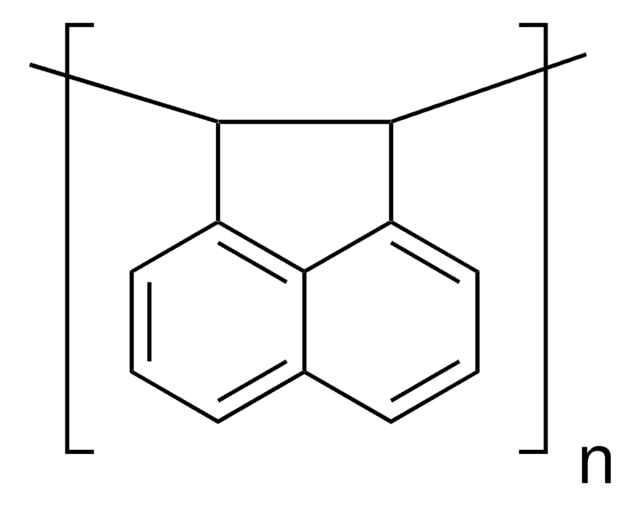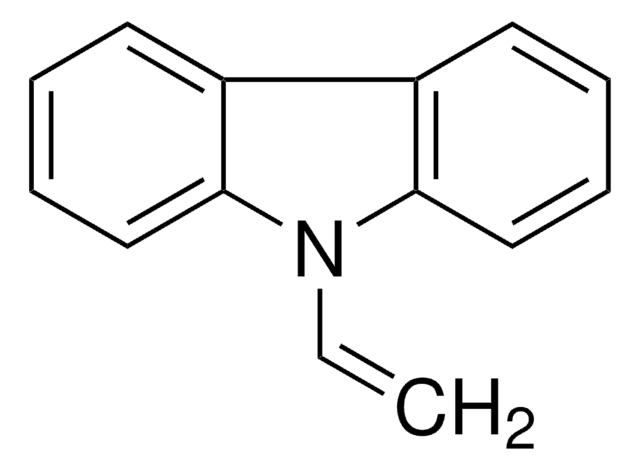461946
Poly(2-vinylnaphthalene)
average Mw ~175,000
Synonym(s):
2-Vinylnaphthalene homopolymer, 2-Vinylnaphthalene polymer, Poly(β-vinylnaphthalene)
Sign Into View Organizational & Contract Pricing
All Photos(1)
About This Item
Linear Formula:
[CH2CH(C10H7)]n
CAS Number:
MDL number:
UNSPSC Code:
12352103
NACRES:
NA.23
Recommended Products
mol wt
average Mw ~175,000
Quality Level
transition temp
Tg (DSC) 135 °C (onset)
InChI
1S/C12H10/c1-2-10-7-8-11-5-3-4-6-12(11)9-10/h2-9H,1H2
InChI key
KXYAVSFOJVUIHT-UHFFFAOYSA-N
Looking for similar products? Visit Product Comparison Guide
Application
- Molecular Weight Dependence of Triplet-Triplet Processes in Poly(2-vinylnaphthalene): This research examines the effects of molecular weight on the triplet-triplet processes in poly(2-vinylnaphthalene) at low temperatures, providing insights into the photophysical properties of this polymer (N Eliezer, NBS Special Publication 526).
- Atom Transfer Radical Polymerization in the Solid-State: This paper discusses the synthesis of poly(2-vinylnaphthalene) via solid-state atom transfer radical polymerization, highlighting a novel approach to polymer synthesis that reduces solvent use (HY Cho, CW Bielawski, Angewandte Chemie, 2020).
Storage Class Code
11 - Combustible Solids
WGK
WGK 3
Flash Point(F)
Not applicable
Flash Point(C)
Not applicable
Personal Protective Equipment
dust mask type N95 (US), Eyeshields, Gloves
Choose from one of the most recent versions:
Already Own This Product?
Find documentation for the products that you have recently purchased in the Document Library.
W J Litchfield et al.
Clinical chemistry, 30(9), 1489-1493 (1984-09-01)
Recent innovations in particle design have led to the development of highly sensitive and reproducible immunoassay methods for the Du Pont aca discrete clinical analyzer. Key advances include the synthesis and use of particles less than 1 micron in diameter
Fengyang Wang et al.
Macromolecular rapid communications, 33(10), 933-937 (2012-03-01)
A straightforward strategy for assembling polymeric dimers from amphiphilic nanoparticles is reported. Amphiphilic polymeric nanoparticles with a mixed-shell of PEO/P2VN blocks and a flexible core of PAA blocks are fabricated by a non-covalent crosslinking method. Uniform polymeric dimers are efficiently
Our team of scientists has experience in all areas of research including Life Science, Material Science, Chemical Synthesis, Chromatography, Analytical and many others.
Contact Technical Service







